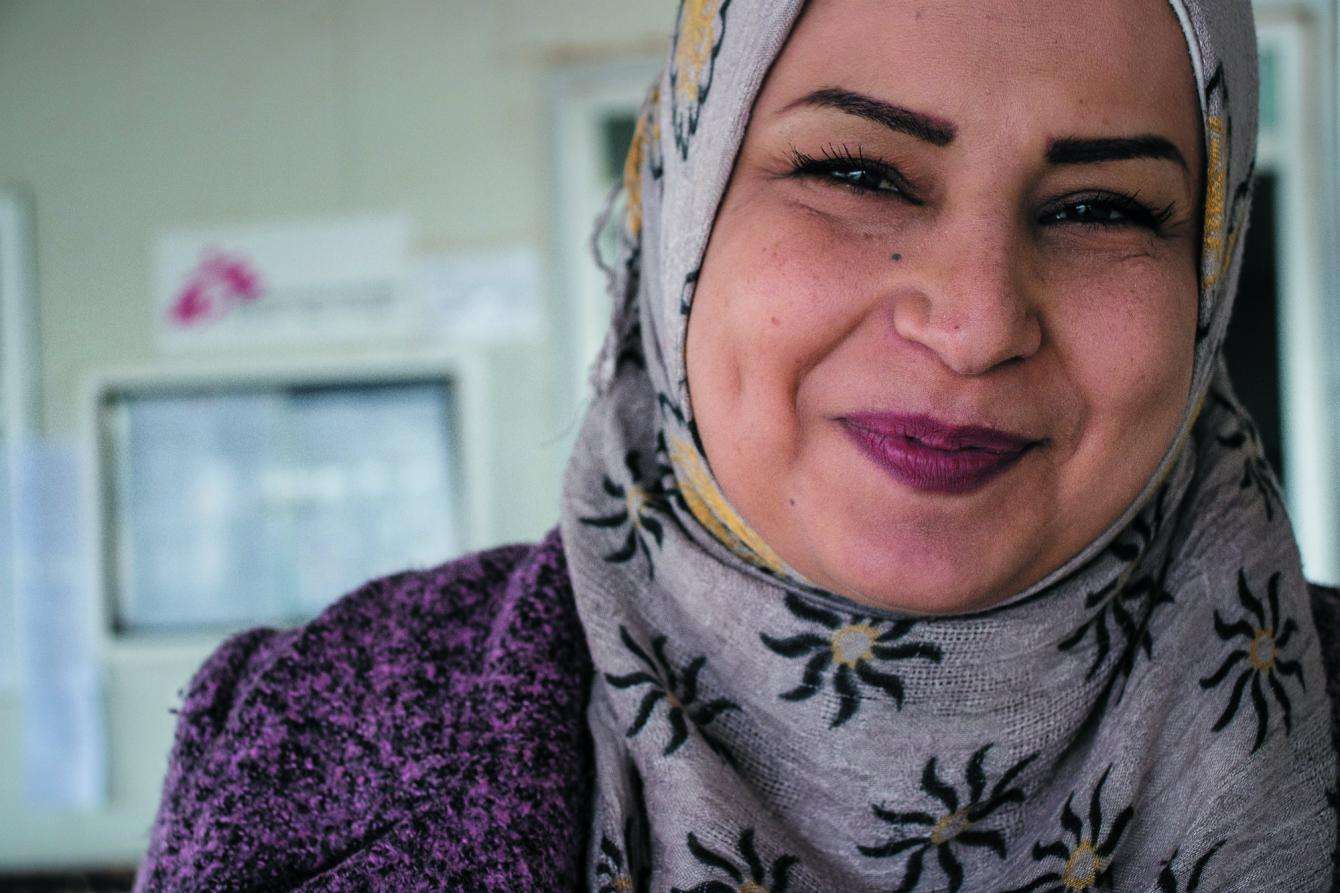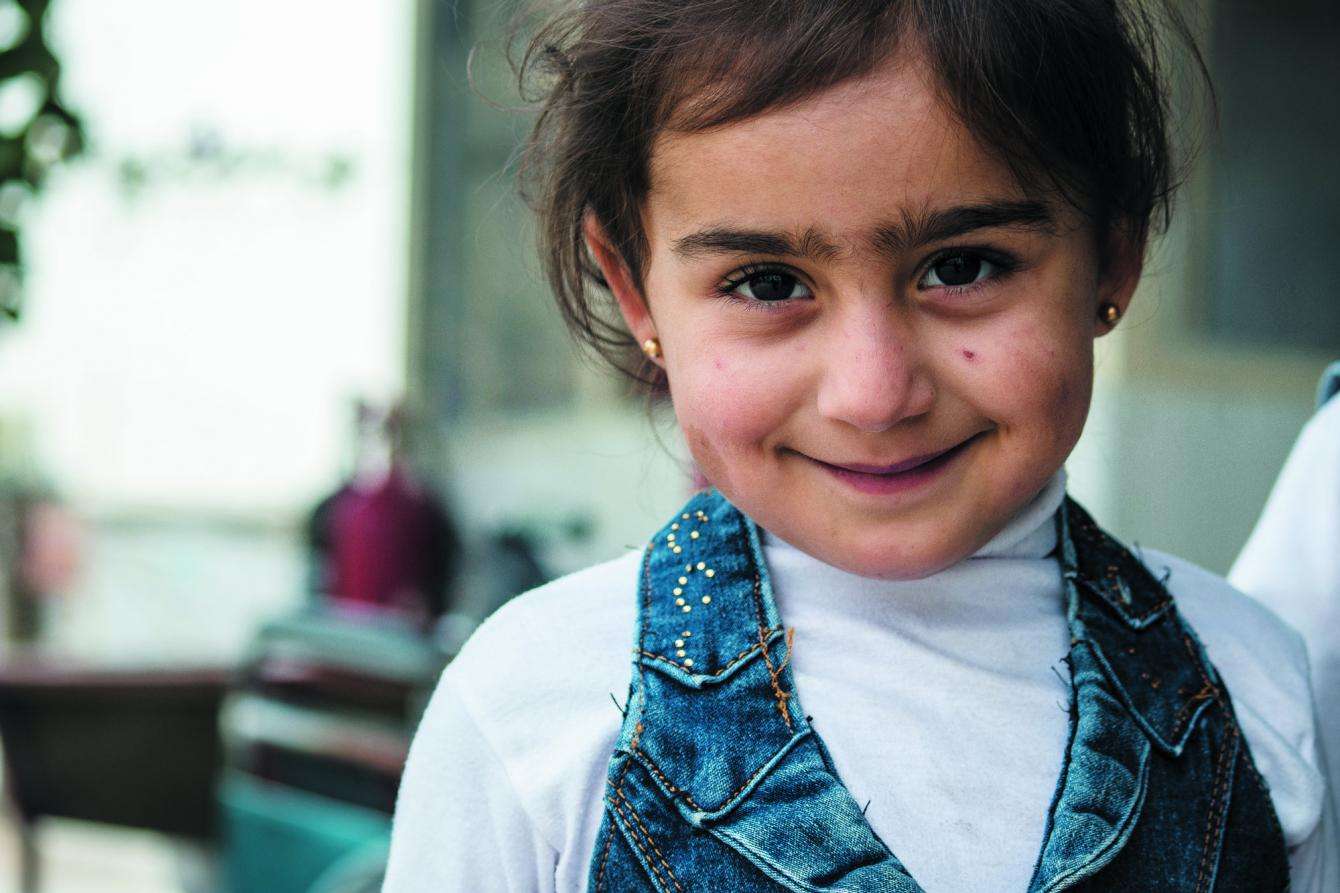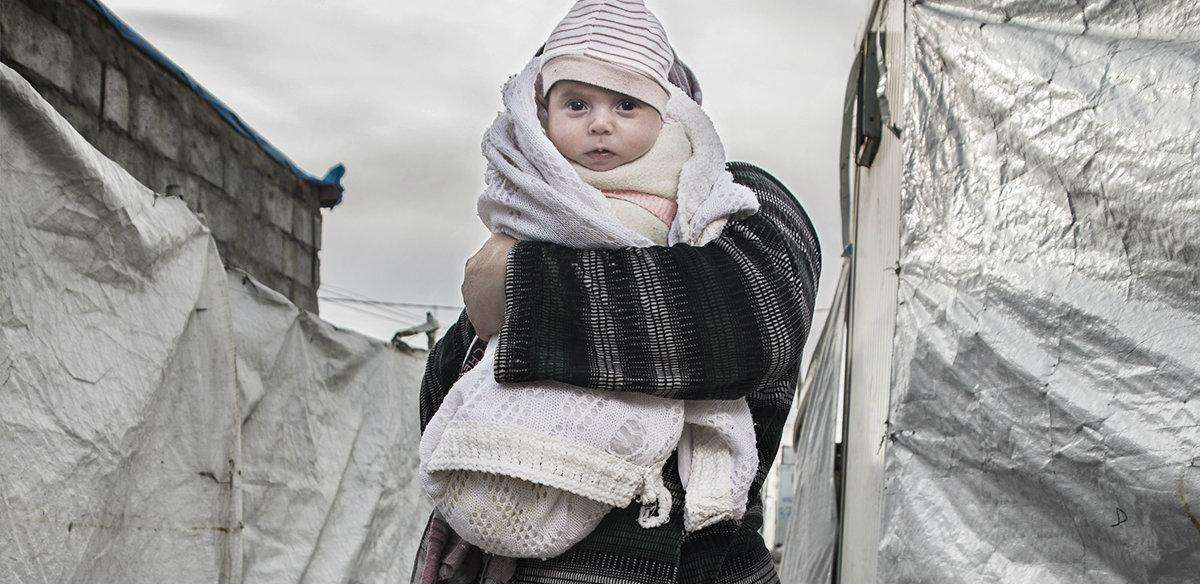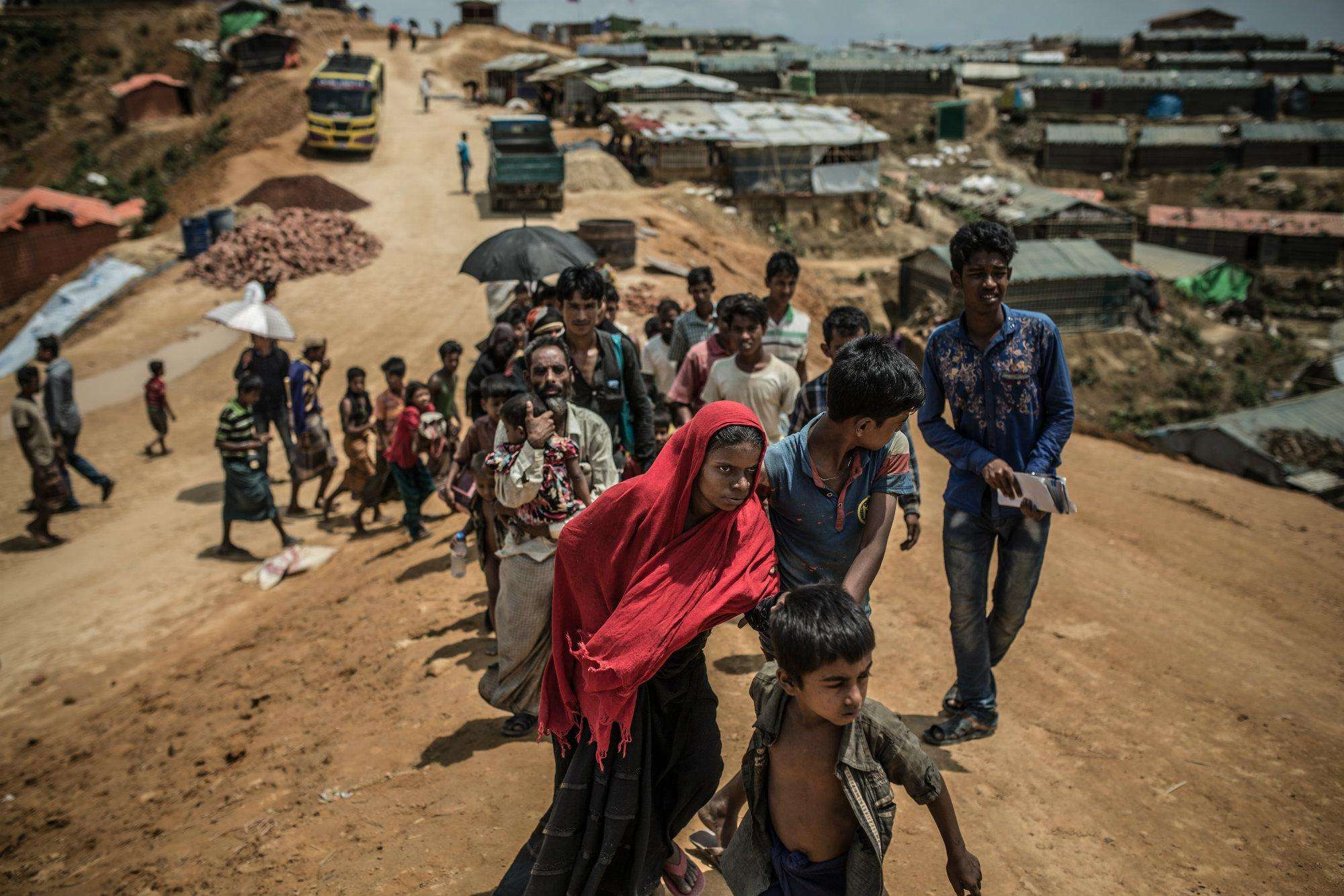Midwife Abla Ali despaired as she crouched on the floor of a tent in Domiz refugee camp in northern Iraq. Abla had no equipment or extra help as she attended a mother struggling to deliver a baby whose shoulder was stuck. She summoned all her strength and eventually pulled the small baby safely into the world.
“There were no basic services in the camp—no toilets, no water,” Abla said, recalling her experiences after arriving at Domiz camp in 2013. "It was cold, and it was raining, and it was so hard to look inside a tent and know we had to stay there.” She had fled Syria with her family when fighting started in their city. A neighbor’s house was bombed, killing everyone inside. Abla felt lucky to be alive, yet life was still hard in the camp.
Abla had trained as a midwife in Syria and set to work in Domiz almost immediately. She helped women give birth in their tents because it was too far to travel to the nearest hospital. Abla said it was manageable unless there was a complicated birth. “I just had to try my best with what I had and hope the baby survived,” she said.

In response to the needs, MSF built a maternity clinic in Domiz where women from the camp can safely deliver their babies and access care before and after giving birth. Over the past four years, MSF medical teams have delivered more than 3,400 babies and provided more than 27,400 gynecological consultations. Women here no longer give birth on the floor of a tent.
Domiz has now grown to shelter more than 40,000 Syrian refugees, and many of them have settled in for the long haul as the war next door continues. The tents have been replaced with basic concrete houses clad with iron sheets, makeshift cafes serve steaming plates of Syrian food, and carpet shops display their wares along dusty roads.
MSF launched the sexual and reproductive health and maternity project in Domiz camp in 2013. Teams initially provided prenatal care, antenatal care, and family planning services. In 2014, the project was expanded to a full maternity unit with a 24-hour delivery room, triage, and gynecological consultations.
Twenty-nine-year-old Shorash was the first mother to deliver at the clinic. She gave the midwives who delivered her baby the honor of choosing a name: Isla. Since then, Shorash has also given birth to baby Shifa at the facility.
“I heard about the maternity unit from my neighbors, and someone from MSF visited us and informed us that there would be a new unit,” Shorash said. “The services here are really good, and they take care of us.” She was grateful to have access to free and comprehensive support. “They visited me and did tests and monitoring before, during, and after delivery. It was important for me because I wanted to know the baby was okay,” she said.

MSF has now handed over the maternity unit to the Dohuk Directorate of Health to carry on this important work.
Abla—who started working at the maternity clinic first as a midwife and later as a sexual and reproductive health care supervisor—recently gave birth to her own baby at the clinic. “We provide a good service for women—the full package of care from the beginning of the pregnancy until after the birth,” she said. “Women feel more comfortable here because the staff are from the camp, and the staff are Syrian.”
She is proud of her legacy having worked closely with families at the camp over several years. “The best part of being a midwife is the appreciation from the mothers,” Abla says. “They stop me in the camp when I pass, and they say to their children: ‘This is Abla, she’s a good midwife and she delivered you.’”





